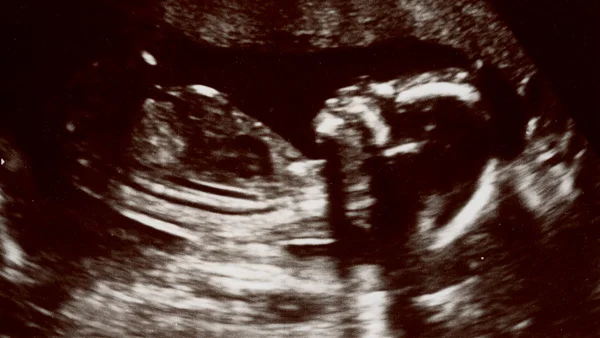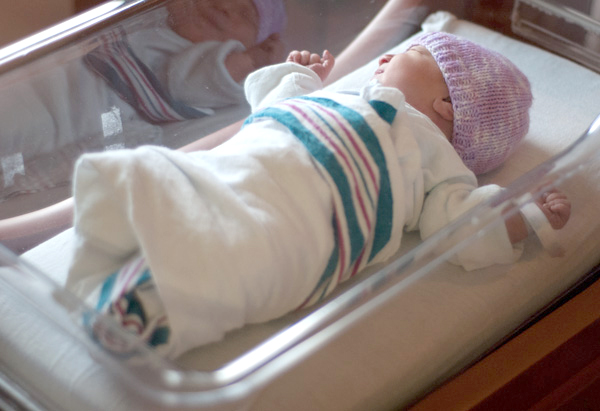It's baby-making month! What you need to know about your fertility.
/Hi everyone!
We made it through a practically eventless January, and finally there’s lots of fun stuff for kids to do. Have you checked out our list of almost-daily Valentine’s events for kids? So many options! And for those of you celebrating the holiday in a grown-up way with hopes of a November baby, we’ve created a refresher course on fertility during your 20s, 30s, and 40s.
But first, we have some fun announcements:
Save 30% on tickets to Sesame Street Live!
This fun show is playing downstairs at the Hulu Theatre at Madison Square Garden and it’s running from February 15–24. If you use code FAMSSL you can save up to 30% on select seats and performances. Also try the code FBSAVE and check Groupon for other deals! Click here to get tickets!
FREE ticket giveaway! Shadow Play at the Performing Arts Center
We have a family four-pack of tickets to this delightful performance taking place on Sunday, March 10 at 3pm. Have you ever wondered what happens to your shadow while you sleep? Well, it turns out that some shadows are more mischievous than others. Soon after moving to his new home, Flash discovers that his shadow has moving plans of his own! Follow the playful adventures of Flash and his quest to reunite with his shadow in this multimedia performance for the youngest of audiences (ages 2–5), and the young at heart. For a chance to win free tickets, follow us on Instagram, then fill out this form by March 1. Good luck!
Your fertility at every age
In honor of Valentine’s Day, we’ve partnered with the doctors at ORM Fertility to bring you info about your fertility over the decades. ORM Fertility is one of the most sought-after fertility providers in the world. Visit their website to learn more about locations and services.
First, a biology lesson: Women are born with all the eggs they will ever have. The number of eggs actually peaks as a fetus, and by birth we have about 1 million eggs left. When a girl begins her menstrual cycle during puberty, the number is down to about 500,000 eggs….and she hasn’t even had a chance to use one yet!
As women get older, our eggs do not function as well, meaning they are less likely to result in a pregnancy, and that if a pregnancy occurs, the risk of miscarriage increases as well.
Fertility safeguarding
At any age, a woman can optimize her ability to successfully conceive by maintaining a healthy lifestyle. Do not smoke. Limit alcohol intake to 4 or fewer drinks per week (for both partners). Maintain a healthy weight as women who are underweight or overweight can take longer to conceive. Take a daily prenatal vitamin or folic acid supplement. Monitor your menstrual cycle, because regular periods (which is defined as occurring every 24-35 days) ensure you are ovulating so that you have a chance to conceive when you are ready.
If a woman’s menstrual cycle is irregular, she may not be ovulating, and it will be harder (if not impossible) to get pregnant. Seeing your ob-gyn to evaluate irregular periods can help identify and treat the reason you are not ovulating.
The role of genetic testing
The American College of Obstetricians and Gynecologists (ACOG) recommends preconception genetic carrier screening for cystic fibrosis and spinal muscular atrophy. These are autosomal recessive diseases, which means that they require a baby to inherit two affected genes (one from the mother and one from the father) to cause the disease.
A woman may carry one of the genes and not be aware of it. If both partners are found to carry the gene, they can review their genetic testing options and treatments available to help prevent passing it to their child.
Things to consider in your 20s:
Many women in their 20s are still completing their education or blazing their career path and are not ready to settle down and start a family. From a reproductive standpoint, the vast majority of these women will still successfully conceive in their 30s as the decline in egg health is very subtle from our 20s to our mid-30s.
However, today a woman has the option of freezing her eggs. Women in their 20s who know they want children in the future can undergo some simple testing (ultrasound and blood tests) to assess their egg health and help determine if egg freezing is a treatment they should consider now or something they can wait to pursue at an older age if needed.
Things to consider in your 30s:
The chance of getting pregnant each month declines progressively throughout a woman’s 30s. In the early 30s, the chance of pregnancy each cycle is approximately 20%. At 35, the chance of pregnancy each cycle is 15% and decreases to 5% as a woman approaches 40. The age-related decline in fertility is accompanied by a significant increase in the risk of miscarriage. The risk of miscarriage for women under 35 is approximately 15% and increases to 30% at 40.
When should women in their 30s get help if they can't conceive?
It is never too early for a woman to begin a conversation with her health care provider about her fertility. Women who are under 35 should seek evaluation if they have failed to conceive after 12 months of regular, unprotected intercourse. Given the age-related changes in fertility, women over the age of 35 should seek help after 6 months of trying.
What risk factors may make it more difficult to become pregnant?
There are several factors that can affect a woman’s ability to become pregnant. It can be more difficult to conceive if a woman has irregular menstrual cycles or issues with the uterus or fallopian tubes. The uterus can be affected by the presence of fibroids or scar tissue, whereas, having a history of pelvic infections or endometriosis can affect the fallopian tubes. Lifestyle factors can also affect fertility. For example, women who are either overweight (BMI > 35) or underweight (BMI < 19) can have difficulty conceiving. Tobacco use and heavy caffeine use can also affect fertility. We recommend that women trying to conceive maintain a healthy diet, avoid tobacco and use caffeine in moderation (<250 mg caffeine per day).
Don’t forget the other half of the fertility equation!
20% of the time the reasons for infertility are due to male factors. It is important that the male partner be included in the evaluation.
What can be done if a women in her 30s is facing infertility?
The first step is to have a conversation with a healthcare professional. This can be a primary care provider, general OB/GYN or a reproductive endocrinologist. The basic fertility analysis includes evaluation of the health of the eggs and fallopian tubes, and performing a semen analysis to evaluate the sperm. Additional testing may be recommended if other risk factors are present.
Because the risk of chromosomal abnormalities increase as a woman gets older, additional testing may be recommended during pregnancy to ensure the genetic health of the baby. This may include a simple blood test or a more invasive procedure, such as amniocentesis. There are also fertility treatments available to evaluate this risk prior to conceiving a baby.
Treatment options
There are many options available for having difficulty trying to conceive. The more conservative treatment options include the use of medications to help the ovaries release more eggs and intrauterine insemination (IUI).
Some find that they need to utilize more advanced forms of treatment, such as in vitro fertilization (IVF) in order to conceive. IVF is a process where the eggs in a woman’s ovaries are stimulated to mature and then removed through a simple surgical procedure. The eggs are then fertilized with the sperm and embryos are grown in the laboratory for several days. A healthy embryo can then be returned to the women’s uterus or additional testing can be performed to evaluate the genetic health of the embryo prior to embryo transfer. This testing is referred to as Preimplantation Genetic Testing. Once the testing has been performed an embryo will be selected and then transferred to the woman’s uterus.
Things to consider in your 40s:
The total number of eggs in the ovaries decreases as a woman ages. Additionally, a lower percentage of the remaining eggs will contain the correct number of 46 chromosomes. When a woman reaches her late 30s, she has about 25,000 eggs remaining—and at menopause, this number likely reaches less than 1,000. The decline in both the number and quality of eggs can also be influenced by environmental factors including chemotherapy, pelvic radiation, smoking, or ovarian surgery; or by genetic abnormalities such as Fragile X. Despite the multiple tests available to evaluate a woman’s ovarian reserve, the best indicator of egg quality is age.
When should women in their 40s get help if they can't conceive?
If a woman is experiencing infertility in her 40s, the best initial step is early evaluation. A doctor will discuss simple testing that can be used to determine overall ovarian reserve, as well as other diagnostic tests that can evaluate whether she is ovulating, the status of her fallopian tubes, and the semen quality of her partner. Earlier detection can increase a woman’s chance of success.
What can be done if a women in her 40s is facing infertility?
After the infertility evaluation is completed, a woman’s provider will often recommend advanced reproductive technologies including standard IVF, minimal stimulation IVF, donor egg, or donor embryo.
If a woman has had her eggs frozen, can she become pregnant in her 40s?
Yes! A woman in her 40s can decide to thaw her frozen eggs when she is ready. Similar to IVF, her eggs will be inseminated with sperm and followed in a controlled environment as they grow from fertilization to a blastocyst (day 5 or 6 embryo). Embryos can be transferred into the woman’s uterus at this point, or she might choose to have the embryos tested for genetic abnormalities prior to the transfer. It is important to realize that not all embryo transfers will result in pregnancies or live births. Speak with your IVF clinic to become well informed about your chances for pregnancy.
Thanks, ORM Fertility! I hope you enjoyed this glimpse of fertility through the decades.
That's it for this week! For more events and musings, follow us on Facebook and Instagram. And as always, check our website for events and our easy-to-navigate chart of every weekly kids library program in Westchester.
Thinking about summer programs? Read our tips on how to find the perfect camp! And if you like what you're reading, please sign up for our once-weekly email of events and ideas in the wonderful world of Westchester parenting.
See you next time!
Andrea





